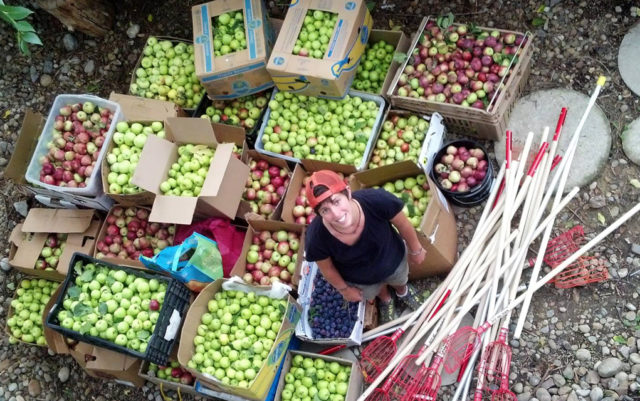
Food retailers in Boulder, like most eateries in most cities around America, are in desperate need of education on the subject of food donation.
A recent survey found that Boulder’s restaurants — all 265 full-service establishments within city limits — could donate 1.2 million pounds of safe food to local nonprofits for redistribution each year if businesses only knew how to go about the process.
The City of Boulder teamed up with nonprofit Boulder Food Rescue (BFR) to conduct this research — the Food Waste Audit — and published the results earlier this year.
According to the audit, somewhere between 30 and 50 percent of all food produced in the U.S. is thrown away and never eaten, which is a huge problem when one in six people have limited or uncertain access to food.
“It makes more sense if you can feed people with food than [to] transform it into compost,” says Kara Mertz, environmental program manager for the City of Boulder.
Beyond missing opportunities to feed people, food waste demonstrates inefficiencies on multiple levels.
“We’re spending a lot of energy and land and water to even grow that food in the first place. So to be able to redistribute that before it hits the landfill is huge from an environmental perspective,” says Hana Dansky, executive director of BFR. “We’re not wasting all those resources that we’re putting into our food.”
The report revealed a lot of untapped potential for food collection in Boulder, mainly because business owners don’t always understand how to prepare food for donation, and don’t understand potential benefits of donating food. Many business owners expressed concern about liability — what happens if someone gets sick from food donated from their establishment.
“There wasn’t a consistency of understanding of how to donate food and what happens to it afterwards,” Mertz says.
But food retailers have nothing to lose when it comes to food donation. The 1996 Bill Emerson Good Samaritan Act protects businesses from legal responsibility (barring gross negligence, of course) when they donate food to a nonprofit organization. In addition, businesses can cut down on composting costs and receive a tax credit for donating food.
Now that the Food Waste Audit exists, the City of Boulder and BFR are collaborating to provide training to businesses to maximize food rescue.
The City had already made strides toward reducing waste through 2015’s Universal Zero Waste Ordinance. The rule requires all food vendors in Boulder to participate in a citywide composting program by June 2016 — a quickly approaching deadline.
Through City funding, Partners for a Clean Environment (PACE) facilitates trainings for businesses to transition to composting. In light of the Food Waste Audit, these trainings are the perfect platform for BFR to partner with PACE and kill two birds with one stone; business owners learning to compost could simultaneously learn to separate edible food for donation.
“It’s really a perfect time to get the businesses on board with donating if they’re first starting a compost program because we’re retraining them anyway to not put everything in the trash,” Mertz says.
Waste reduction efforts like those happening in Boulder are a small part of a larger movement toward sustainability in Colorado and throughout the U.S. and the world. The U.S. Department of Agriculture and Environmental Protection Agency have set national goals of a 50 percent reduction in food waste in the U.S. by 2030. The United Nations’ Food and Agriculture Organization (FAO) is also working to reduce food waste and has inspired such efforts as the U.K.-based Waste and Resources Action Program (WRAP), which produced a 21 percent reduction in post-consumer food waste between 2007 and 2012.
According to the FAO, food waste is the third highest producer of carbon dioxide (CO2) emissions in the world. In 2014, the City of Boulder sent more than 34,000 tons of organic waste to the landfill. However, a transition to composting since then has begun to curb that number. According to the Food Waste Audit, if the city’s waste reduction efforts see the same success as WRAP, such a decline in food waste would curb CO2 emissions by 525 metric tons.














